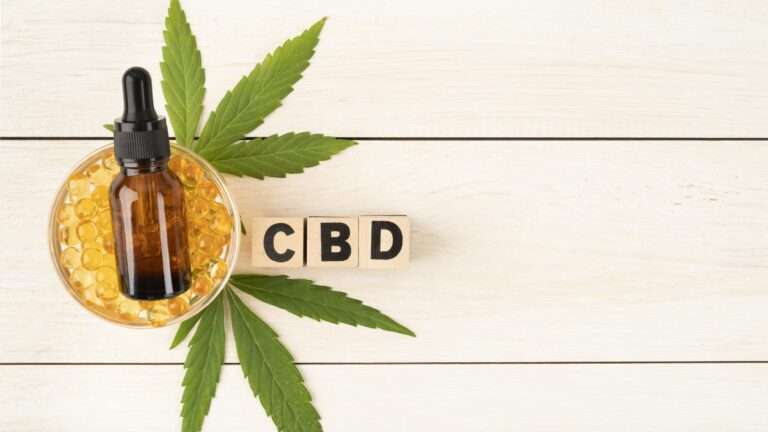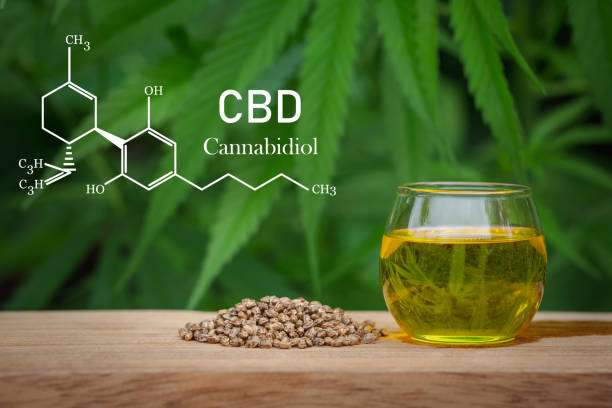Cannabidiol (CBD) is a cannabinoid found in cannabis. It is one of the most abundant cannabinoids and is non-intoxicating. CBD has been shown to have anti-inflammatory, analgesic, and anti-anxiety effects. CBD is also being studied for its potential to treat epilepsy, addiction, and other neurological disorders.
How is cannabidiol different from marijuana, cannabis and hemp?
The cannabis plant contains more than 100 different chemical compounds known as cannabinoids, of which cannabidiol (CBD) is one of the most well-known. CBD is a non-intoxicating cannabinoid that has shown promise in a variety of medical applications, from pain relief to treating anxiety and depression.
While CBD is found in both marijuana and hemp plants, it is most concentrated in hemp. Hemp is a type of cannabis plant that contains less than 0.3% THC, the psychoactive compound that produces the “high” associated with marijuana use. This means that hemp-derived CBD products will not get you high.
CBD and THC are just two of the many cannabinoids found in cannabis plants. However, they are the most well-known and studied cannabinoids. CBD is known for its potential medical benefits, while THC is responsible for the psychoactive effects of marijuana.
There is a lot of confusion around the difference between CBD, marijuana, and hemp. Here’s a quick rundown:
CBD is short for cannabidiol. It is a non-intoxicating cannabinoid found in both hemp and marijuana plants.
Marijuana is a type of cannabis plant that contains high levels of THC. It is illegal in most states.
Hemp is a type of cannabis plant that contains low levels of THC. It is legal in all states.
So, what’s the difference between CBD, marijuana, and hemp?
CBD is a non-intoxicating cannabinoid found in both hemp and marijuana plants. THC is the cannabinoid responsible for the psychoactive effects of marijuana. Hemp is a type of cannabis plant that contains low levels of THC.
Is cannabidiol legal?
The short answer is that cannabidiol (CBD) is legal in the United States. However, there are some nuance to this answer. Let’s take a closer look.
CBD is a compound found in the cannabis plant. Cannabis is a Schedule I drug under the Controlled Substances Act (CSA). This means that it is illegal to manufacture, possess, use, or distribute cannabis in the United States. However, the CSA also provides an exception for CBD.
The CSA defines cannabis as “all parts of the plant Cannabis sativa L., whether growing or not; the seeds thereof; the resin extracted from any part of such plant; and every compound, manufacture, salt, derivative, mixture, or preparation of such plant, its seeds or resins.” However, it exempts “the mature stalks of such plant fiber produced from such stalks oil or cake made from the seeds of such plant, any other compound, manufacture, salt, derivative, mixture, or preparation of such mature stalks (except the resin extracted therefrom),fiber, oil or cake, or the sterilized seed of such plant which is incapable of germination.”
This exemption applies to CBD as well. CBD is not specifically listed as a controlled substance under the CSA. However, because it is derived from cannabis, it is still considered a Schedule I drug.
The DEA has taken the position that all forms of CBD are illegal. However, the 9th Circuit Court of Appeals has ruled that CBD is not a Schedule I drug. This conflict between the DEA and the 9th Circuit is currently being resolved.
In the meantime, CBD derived from hemp is legal in all 50 states. Hemp is a variety of the cannabis plant that contains less than 0.3% THC. THC is the compound in cannabis that is responsible for its psychoactive effects. CBD derived from marijuana is still illegal at the federal level.
So, to answer the question, CBD is legal in the United States, but there are some caveats. CBD derived from hemp is legal in all 50 states, but CBD derived from marijuana is still illegal at the federal level. The DEA’s position on CBD is
The evidence for cannabidiol health benefits
Cannabidiol (CBD) is a compound found in cannabis and hemp. THC is also found in cannabis, but it’s the compound that gets users high, not CBD. CBD has been shown to offer a variety of health benefits, including reducing inflammation, pain relief, and anxiety relief. However, more research is needed to confirm these potential health
benefits.
CBD is short for cannabidiol. It’s one of more than 100 compounds found in cannabis and hemp. THC is another compound found in cannabis. It’s the one that gets people high. CBD and THC are both cannabinoids. Cannabinoids are compounds found in cannabis plants.
CBD has been shown to offer a variety of health benefits. These include reducing inflammation, pain relief, and anxiety relief. However, more research is needed to confirm these potential health benefits.
Reducing inflammation
CBD has been shown to reduce inflammation in a variety of studies. One study showed that CBD was able to reduce inflammation in rats by reducing the production of inflammatory cytokines. Another study found that CBD was able to reduce inflammation in human cells.
Pain relief
CBD has also been shown to offer pain relief in a variety of studies. One study showed that CBD was able to reduce pain in rats by reducing the production of inflammatory cytokines. Another study found that CBD was able to reduce pain in human cells.
Anxiety relief
CBD has also been shown to offer anxiety relief in a variety of studies. One study showed that CBD was able to reduce anxiety in rats by reducing the production of inflammatory cytokines. Another study found that CBD was able to reduce anxiety in human cells.
Is CBD safe?
Cannabidiol, or CBD, is a chemical compound found in the cannabis plant. Unlike its more famous cousin, THC, CBD does not make you high. But it’s been shown to have some medical benefits, like relieving pain and anxiety.
So, is CBD safe?
The short answer is yes. CBD is considered to be generally safe, and there’s a growing body of evidence to support its use.
CBD is well tolerated by most people, and there are no known serious side effects. That said, it can cause some mild side effects, like fatigue, diarrhea, and changes in appetite. And it can interact with some medications, like blood thinners.
So, if you’re thinking about using CBD, talk to your doctor first. They can help you weigh the risks and benefits and decide if it’s right for you.
How can CBD be taken?
CBD, or cannabidiol, is a compound found in cannabis and hemp. CBD is not psychoactive like THC, the other main compound in cannabis. This means that it does not produce the “high” that some people associate with cannabis use. CBD has a number of potential therapeutic benefits, including reducing anxiety, relieving pain, and improving sleep. In this article, we examine the potential uses and risks of CBD.
CBD can be taken in a variety of ways. It is available as an oil, capsule, spray, topical solution, and even in gummy form. The most popular way to take CBD is as an oil, drops, or tincture. This involves using a dropper to place the CBD oil under your tongue and holding it there for 60-90 seconds before swallowing. CBD can also be taken in capsule form, or as a topical solution, lotion, or cream.
The effects of CBD vary depending on the individual and the dose. In general, people tend to experience a calming effect after taking CBD. This is due to the compound’s ability to interact with the body’s endocannabinoid system, which helps to regulate mood and stress levels. CBD is also known to have anti-inflammatory and analgesic (pain-relieving) properties.
As CBD is not psychoactive, it is safe to take in most situations. However, as with any supplement, it is always best to speak to a healthcare professional before starting any new treatment. CBD is generally well-tolerated, but some people may experience mild side effects such as tiredness, diarrhea, or changes in appetite. These side effects are usually temporary and resolve on their own.
The bottom line on cannabidiol
Cannabidiol (CBD) is a compound found in cannabis plants. It is one of many compounds found in the plant, including tetrahydrocannabinol (THC), which is the compound that causes the psychoactive effects that are associated with marijuana use. CBD does not have any psychoactive effects.
CBD is being studied for a variety of medical conditions, including epilepsy, anxiety, pain, and inflammation. There is some evidence that it may be helpful for these conditions, but more research is needed.
The bottom line is that we don’t know enough about CBD to say definitively that it is safe and effective for medical conditions. However, it is generally considered to be safe, and it is available without a prescription in many forms. If you’re considering using CBD for a medical condition, talk to your healthcare provider to see if it’s right for you.





